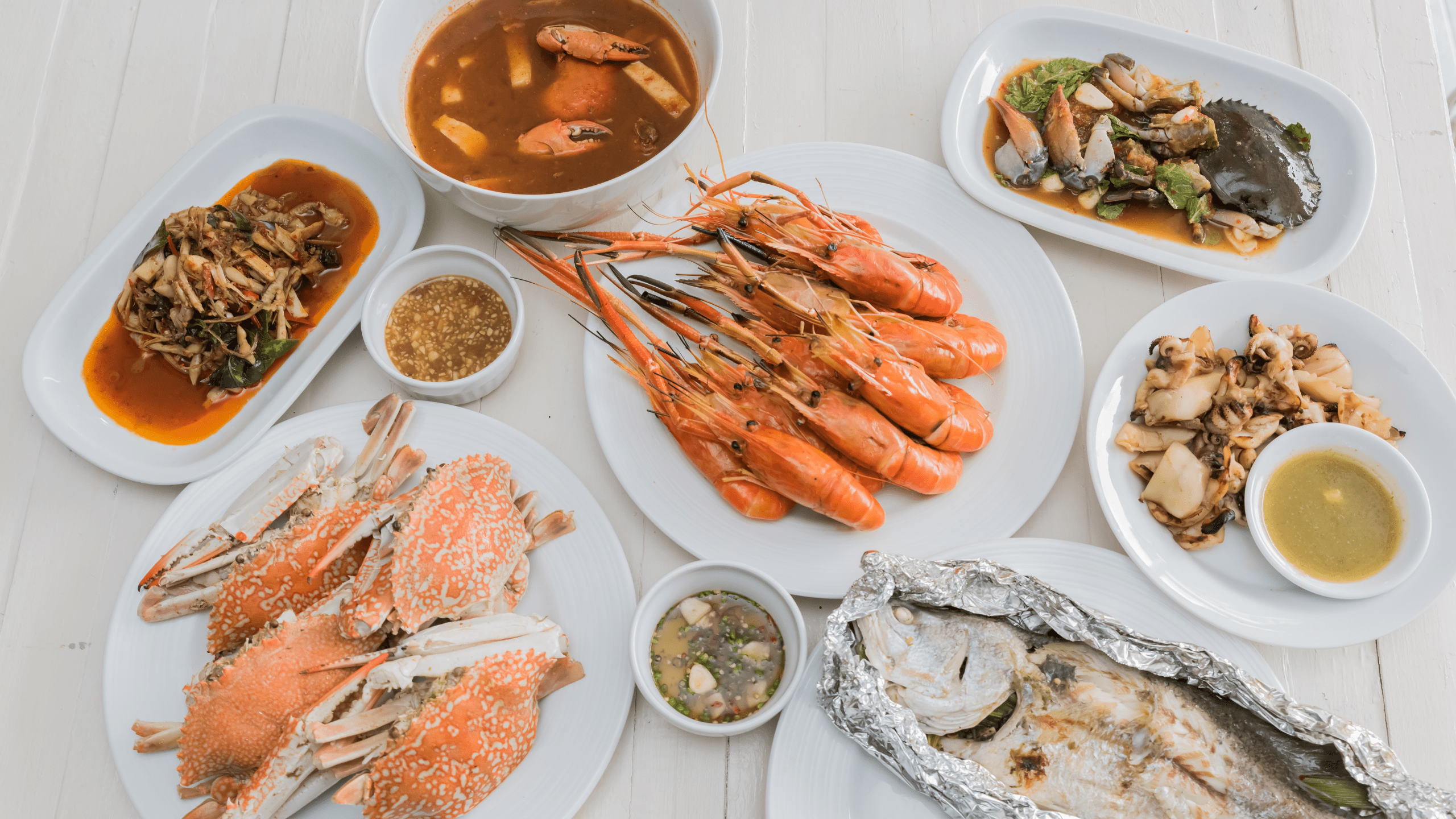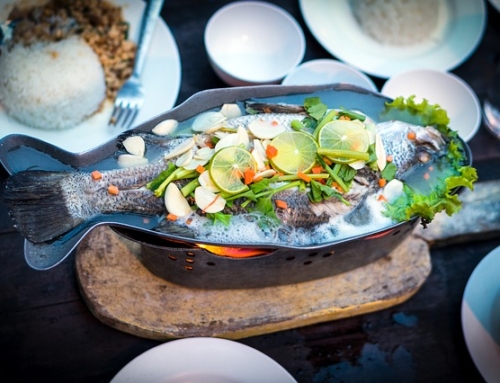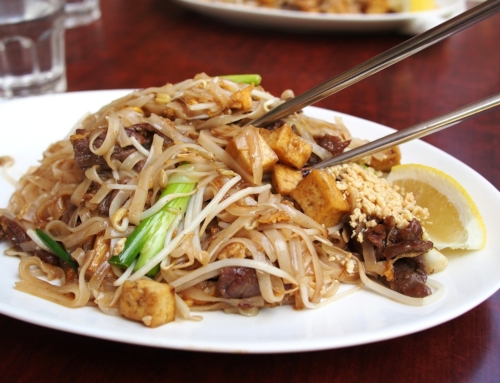
4 Facts about Seafood Allergies Before Loving Thai Food (1)
Did you know that seafood allergies are becoming more and more common? It’s true! A study found that about 2% of the U.S. population has a seafood allergy -which means they are either allergic to shellfish, fish, or both. You may be wondering what this means for your favorite Thai food restaurant or any other Asian restaurant for that matter. There is good news, though: with some knowledge about these types of seafood allergies, we can all enjoy delicious Thai food without worrying too much!
What Is a Seafood Allergy?
A seafood allergy is an allergic reaction to the proteins found in fish, shellfish, or other sea animals. These reactions are usually due to food triggers like certain types of seafood. Most people with these allergies are born with them. But you can also develop them later in life due to contact with seafood that causes a person’s body to create antibodies that recognize the allergen as a threat. It causes the immune system to release histamine, which causes one’s throat to close up and their nose and eyes to itch, among other things.
Symptoms of Seafood Allergies
Most people who have a seafood allergy will notice symptoms within minutes of consuming the allergen food. However, some people will experience delayed reactions up to six hours after they eat the food.
- Hives or welts on your skin that itch
- Itchy, red eyes and throat due to histamine release throughout your body after exposure to seafood allergens
- Nausea or vomiting can result from shrimp or other shellfish exposure if you have this type of allergy.
It is not a complete list of symptoms associated with having a seafood allergy. If you are concerned about whether you might be allergic, please consult with your doctor! They will help answer any questions you may have about which kinds of foods trigger reactions in people who suffer from these types of seafood allergies.
Here are a few facts about seafood allergies before loving Thai food:
Fact #1: Shellfish Allergy Can Occur at Any Point in Life.
It means that even if you’ve never eaten shellfish before, you can still develop an allergy later in life. Some food allergies may go away with time, but shellfish allergies are generally lifelong.
Fact #2: Shellfish Allergies Can Be Life-threatening!
Even though they’re not as common and severe as fish allergies, people who have a shellfish allergy run the risk of having reactions like:
- Wheezing or trouble breathing due to histamine release throughout your body after exposure to seafood allergens
- Hives on your skin go along with swelling and throat closing (which is why we mentioned above how important it is to know what type of seafood triggers these symptoms).
In severe instances, shellfish allergy can induce anaphylactic shock, a severe allergic reaction characterized by a swollen throat (airway narrowing), rapid pulse, faintness or dizziness, and shock. Anaphylaxis is a severe allergic reaction that can be fatal.
Fact #3: You May Experience an Adverse Reaction to Shellfish Without Ever Eating It.
The proteins found in different crustaceans are also considered allergens. It means that if you are allergic, your body is likely to have similar reactions when it comes in contact with these types of seafood.
Fact #4: Iodine Is Not the Culprit for Seafood Allergies and Shellfish Allergies
The proteins found in different kinds of seafood may trigger Seafood allergies and shellfish allergies. Still, iodine doesn’t cause these reactions (which is why people who go on a low-iodine diet for thyroid issues do not usually experience changes in their shellfish or fish consumption).
What To Do If You Suspect That You Have A Seafood Allergy?
If you think you might suffer from seafood allergies, please consult your doctor! They can perform allergy tests that will help determine what kinds of seafood are causing your symptoms.
Can You Still Enjoy Thai Food Though You Have Seafood Allergies?
Thai food lovers may find it challenging to eat Thai cuisine if they have seafood allergies. However, there are plenty of dishes on popular menus that do not have any shellfish. So, yes, Thai food can still be eaten and is usually safe as long as it is made with tofu or vegetables. You’ll want to make sure that the restaurant is aware of your condition before ordering anything that may contain allergens like shellfish or other food items like eggs and milk. This will help you prevent an allergic reaction.
Please let us know if you have any questions or concerns related to seafood allergies! We would love for everyone who reads this post to learn something new about these types of allergies so that we can all eat delicious food together at Thai restaurants across America!
More like this:
The Best Thai Lunch Combos: What to Get at Every Restaurant
The Incredible Thai Food History +4 Regional Differences
9 Most Popular Thai Appetizers
10 Comforting Thai Soups You Should know
Thai Food Culture: An Essential Guide
Thai Chicken Dishes That Everyone Loves
Mouth Watering Thai Foods You’ll Love at Yummy Thai Flowermound







